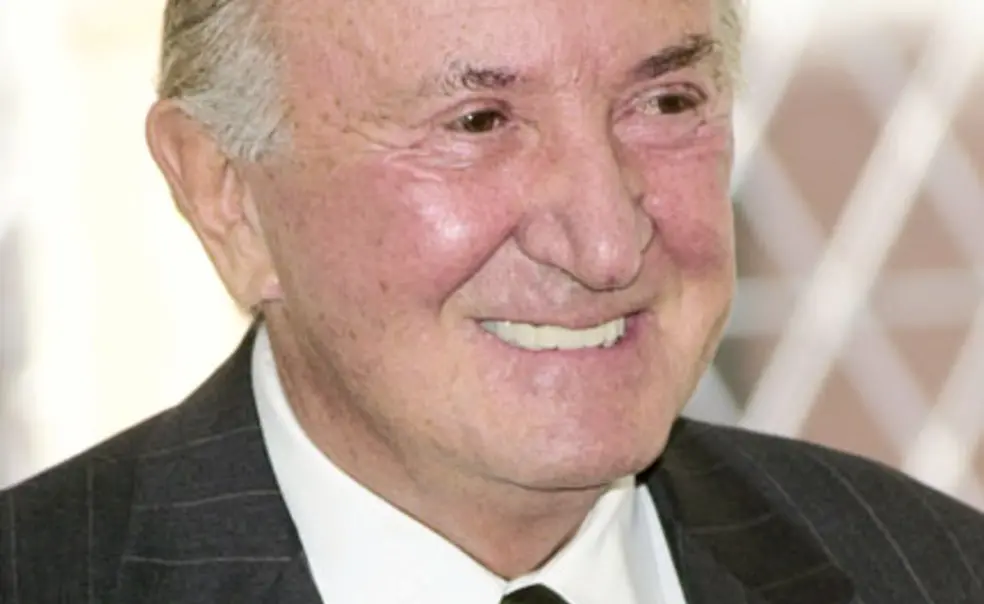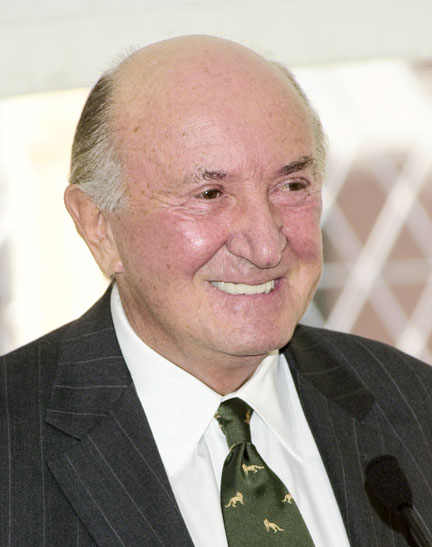$100 million gift to target ‘mankind’s largest problem’
In 1948 an Austrian high school student visited Princeton’s campus during a trip to America he won by writing an essay for the New York Herald Tribune titled “The World I Want.”
Sixty years later — after completing a Princeton degree in two years and going on to found his own investment firm — that student, Gerhard R. Andlinger ’52, still has his eye on the future. He hopes his $100 million gift to Princeton, announced July 1, will “help create a better world” by supporting research in the areas of global warming and sustainable energy.
President Tilghman said Andlinger’s gift will “transform the capacity of the University to make a real contribution” to research in the fields of energy, the environment, and climate change.
The gift will create the Gerhard R. Andlinger Center for Energy and the Environment within the School of Engineering and Applied Science. SEAS Dean H. Vincent Poor *77 said $70 million will go toward the construction of a 110,000-square-foot building, to be called Andlinger Laboratory, between Bowen Hall and the E-Quad. The E-wing of the E-Quad will be renovated, and the former Osborne Field House, which currently houses the Carl Fields Center, will be converted to a conference center, Poor said. The tentative completion date for the work is 2014, he said.
The gift will also create new faculty positions and graduate fellowships, allow the University to bring in visitors and fellows, support public-policy collaborations with the Woodrow Wilson School, and endow a fund to spur innovative, high-risk research, Poor said.
Tilghman described Andlinger as “a very cosmopolitan person” with broad interests. His $25 million gift in 2000 renovated East Pyne and Chancellor Green into “the most beautiful academic home on campus,” she said, and created the Andlinger Center for the Humanities. Andlinger earlier had donated $2 million to create a professorship in the social sciences.
Andlinger is the chairman and founder of Andlinger & Co., a private investment firm based in Tarrytown, N.Y. In an interview with PAW, he said the decision to focus his gift on climate change and energy research was influenced by his business experience, a strong personal interest in what he termed “the largest problem that mankind has,” and the “staggering” amount of research that the University already is conducting in the field.
“My coming to Princeton and my education completely changed the course of my life,” Andlinger said. “For a long time, I had planned to make a significant gift, a legacy kind of a gift to the University. And when this opportunity came up, it was sort of a natural meeting of some of my deepest desires and the ability to do it.”
Andlinger’s gift is Princeton’s third donation of $100 million or more. Gordon Wu ’58 pledged $100 million in 1995. In January 2006, Peter B. Lewis ’55 donated $101 million in support of the arts at Princeton. Andlinger said that when a Princeton trustee suggested he think about a gift of $102 million, “I told him my feeling was that was Mickey Mouse.”
The University announced other gifts in early July with an environmental focus: Thomas Barron ’74 and his wife, Currie, $4.5 million to support the Princeton Environmental Institute and create an endowed professorship and a student prize; and Dwight Anderson ’89, funds for an endowed engineering professorship focused on energy and the environment.
As of Sept. 3, the University reported that it had raised nearly half of the $1.75 billion it is seeking in its Aspire fundraising campaign, which runs through June 2012. “I am extraordinarily pleased with how the first year went,” Tilghman said. Annual Giving, which raised a record $54.1 million, had a “staggeringly successful year,” she said, “given the uncertainties in the economy.”
Editor's note: This story is an edited version of the story published in the Sept. 24, 2008, issue of PAW.













No responses yet